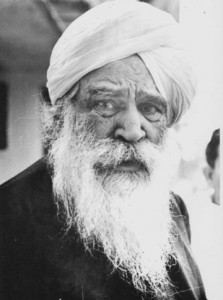Naam: What It Is?

Naam: What It Is?
Excerpt from “Naam or Word”, by Kirpal Singh
…….Then Manjusri addressed the Lord Buddha, saying:
Blessed Lord! Since my Lord has descended from the Deva Realms to this Saha World, he has helped us most by his wonderful Enlightening Teaching. At first we receive this Teaching through our sense of hearing, but when we are fully able to realize it, it becomes ours through a Transcendental and Intuitive Hearing. This makes the awakening and perfecting of a transcendental faculty of hearing of very great importance to every novice. As the wish to attain Samadhi deepens in the mind of any disciple, he can most surely attain it by means of his Transcendental Organ of Hearing. For many a Kalpa – as numerous as the particles of sand in the river Ganges – Avalokiteshvara Buddha, the hearer and answerer of prayer, has visited all the Buddha-lands of the ten quarters of the universe and has acquired Transcendental Powers of Boundless Freedom and Fearlessness and has vowed to emancipate all sentient beings from their bondage and suffering. How sweetly mysterious is the Transcendental Sound of Avalokiteshvara! It is the pure Brahman Sound. It is the subdued murmur of the seatide setting inward. Its mysterious Sound brings liberation and peace to all sentient beings who in their distress are calling for aid; it brings a sense of permanency to those who are truly seeking the attainment of Nirvana’s Peace . . .
While I am addressing My Lord Tathagata, he is hearing at the same time, the Transcendental Sound of Avalokiteshvara. It is just as though, while we are in the quiet selection of our Dhyana practice, there should come to our ears the sound of the beating of drums. If our minds, hearing the sound, are undisturbed and tranquil, this is the nature of perfect accommodation.
The body develops feeling by coming in contact with something, and the sight of eyes is hindered by the opaqueness of objects, and similarly with the sense of smell and of taste, but it is different with the discriminating mind. Thoughts are arising and mingling and passing. At the same time it is conscious of sounds in the next room and sounds that have come from far away. The other senses are not so refined as the sense of hearing: the nature of hearing is the true reality of Passability.
The essence of sound is felt in both motion and silence, it passes from existent to non-existent. When there is no sound, it is said that there is no hearing, but that does not mean that hearing has lost its preparedness. Indeed, when there is no sound, hearing is most alert, and when there is sound the hearing nature is least developed. If any disciple can be freed from these two illusions of appearing and disappearing, that is, from death and rebirth, he has attained the true reality of Permanency.
Even in dreams when all thinking has become quiescent, the hearing nature is still alert. It is like a mirror of enlightenment that is transcendental of the thinking mind because it is beyond the consciousness sphere of both body and mind. In this Saha world, the Doctrine of Intrinsic, Transcendental Sound, may be spread abroad, but sentient beings as a class remain ignorant and indifferent to their own Intrinsic Hearing. They respond only to phenomenal sounds and are disturbed by both musical and discordant sounds.
